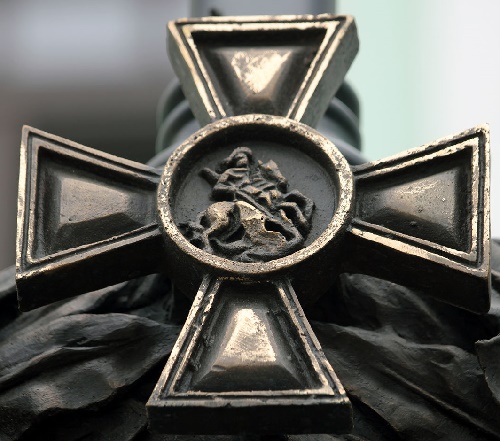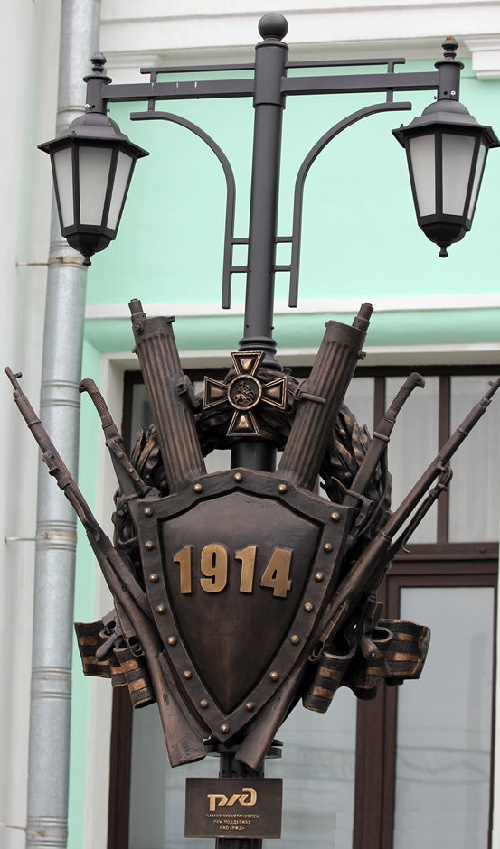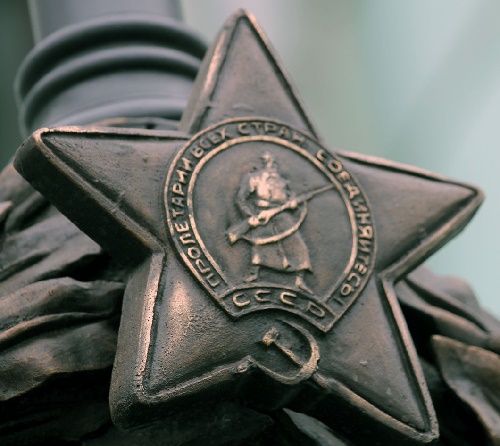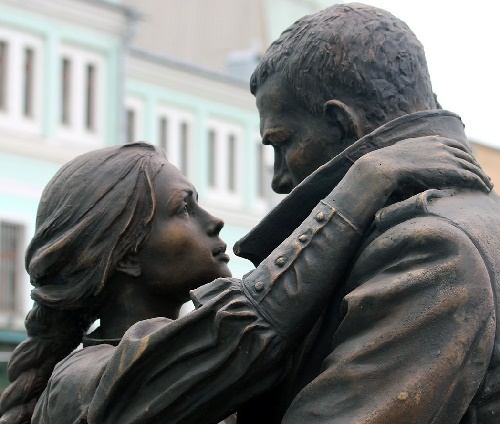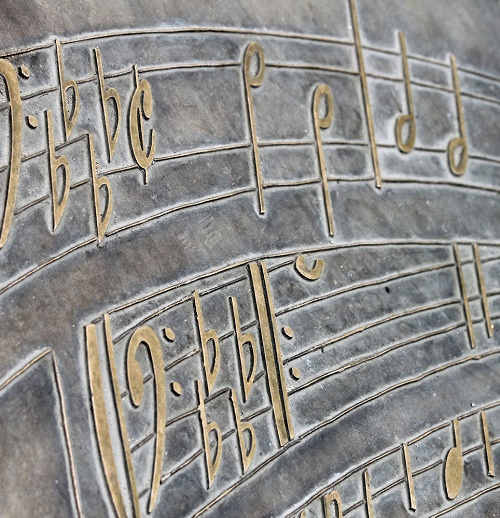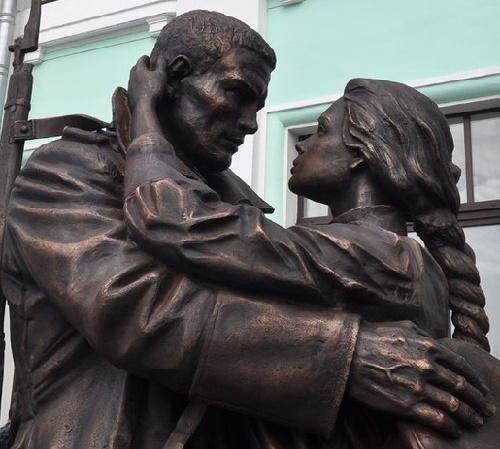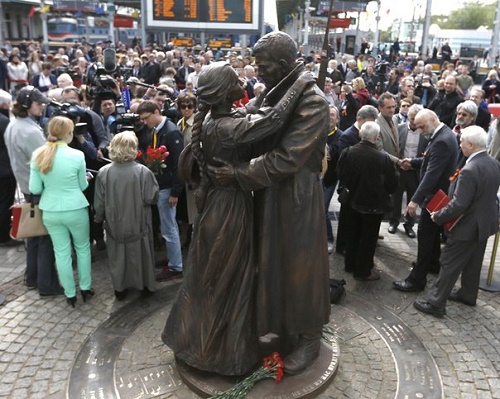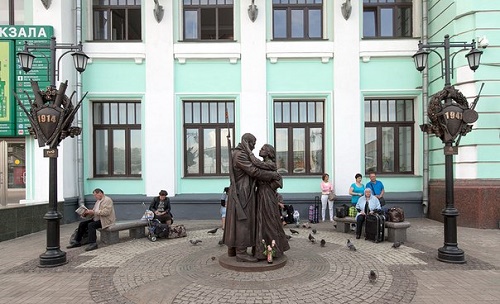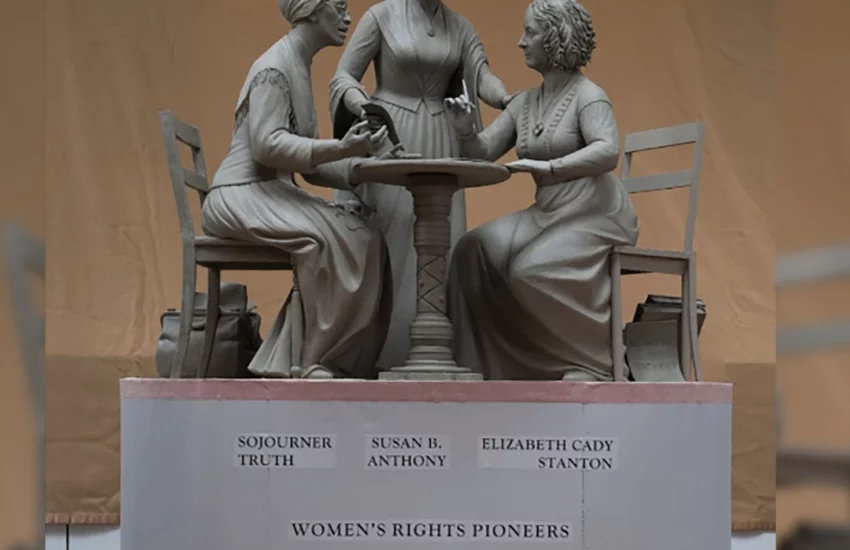Farewell of Slavianka monument
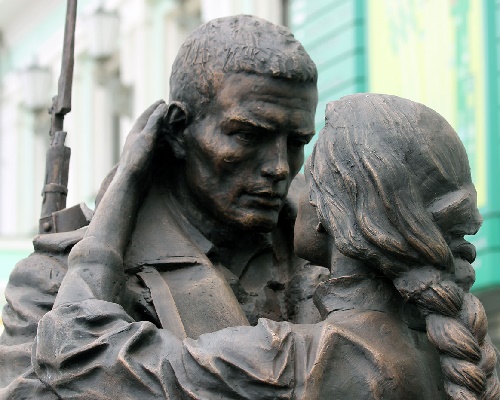
Monument in honor of the famous march “Farewell of Slavianka”, dedicated to all Slavic women, seeing off their relatives to the war, appeared on May 8, 2014 at the Belorussky railway terminal in Moscow. The bronze sculpture was made by a team under the leadership of Salavat Shcherbakov. The sculptural composition depicts the scene of leaving to the front volunteers in the award-winning 1957 film “The Cranes Are Flying” by Mikhail Kalatozov. The cast in bronze two-meter monument of a soldier in uniform hugging his girlfriend depicts the moment of parting of two beautiful young people in love.
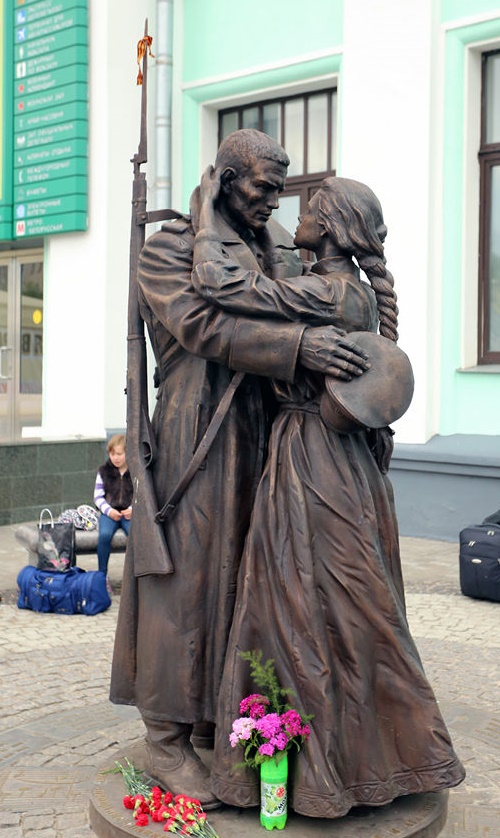
On both sides of the sculpture installed decorative heraldic compositions on the two major wars of the twentieth century: the First World War – to the left of the figures, with the number “1914” on the shield, and the Great Patriotic War – on the right, with the number “1941”.
On the pedestal of the “Farewell of Slavianka” – engraved words of the most famous song-march. The march itself “Farewell of Slav” was written by military conductor and composer Vasily Agapkin during the First Balkan War in 1912. The melody soon became one of the main themes of the Russian army, and so, on parade held on Moscow’s Red Square on November 7, 1941, Agapkin conducted a military band during playing the march. The march “Farewell of Slav” was performed in the movie “The Cranes Are Flying.”

The first text of the unknown author of “Farewell of Slav” appeared in 1914:
“You gave us food and drink,
Homeland native fields.
And we utterly love You,
Holy Rus land.
But the terrible hour of struggle has come,
Insidious enemy attacked us.
And anyone who is the son of Russia,
In the battle with the enemy has only one way.”
Later, many poets (eg, A. Fedotov, Vladimir Maksimov, A. Galich, V. Shilensky, V. Lazarev) wrote their own lyrics to the tune of the march. The theme of “Farewell of Slav” was popular in Poland during the Second World War. In Finland, there is a song “Free Russia” to the tune of the march. And in Israel the song “Between the Borders” on the music of “Farewell of Slav” criticizes the British fight against illegal emigration from Lebanon during the time of the Palestine Mandate after the First World War.
The place for the monument “Farewell of Slav” – Belorussky railway, because from there recruits went to war. 93-year-old daughter of Vasily Agapkin – Aza V. Sverdlova (Agapkina) visited the opening ceremony.
They say that…
… If you rub the barrel of the rifle of a soldier on the monument “Farewell of Slav”, you will not be afraid of the army, and no stray bullet. And that road will a successful and safe. Those who want their beloved to come back safe should rub plait of the girl in the sculpture.
Farewell of Slavianka monument
